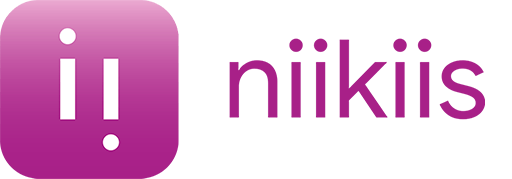In the HORECA sector, onboarding takes on special relevance, as front-line workers are the visible face of the company, interact directly with customers and are more likely to suffer burnout, feel disconnected and even change jobs if they do not feel supported and empowered from day one.
Imagine this: new employees excited to join your team, but disoriented and without the necessary tools to succeed from day one. Don't let it happen to you!
In this article, we will explain 6 strategies to carry out an onboarding that leaves an impression and retains the talent you need.
1. Benefits of the onboarding process in the HORECA sector
A good onboarding process offers a series of significant benefits. Among them, we highlight:
- Improved employee retention:
Effective onboarding helps retain talent in the HORECA sector. By providing a positive onboarding experience, new employees feel valued and connected to the organization, which increases their engagement and reduces turnover. For example, one study found that in restaurants with a strong onboarding process, the long-term employee retention rate was 58% higher than in those without a structured program.
- Reduced adaptation time:
A well-designed onboarding process speeds up the learning curve and accelerates the preparation of the new worker to perform their tasks efficiently and autonomously. In the HORECA sector, where agility and responsiveness are crucial, this translates into reduced adaptation time, allowing workers to quickly get into the work rhythm.
For example, in a luxury hotel, an effective onboarding program allows new staff members to quickly become familiar with operating procedures and service standards, enabling them to deliver a high-quality experience from the start.
- Increased worker satisfaction and service quality:
Well-structured onboarding has a direct impact on employee satisfaction, as it provides them with the tools and confidence they need to perform in their role. This is reflected in the quality of the service they provide.
For example, in a coffee shop, a new barista who has gone through a thorough onboarding process will feel more confident interacting with customers, provide friendly and quality service, and become a brand ambassador.
In summary, the onboarding process in the HORECA sector offers key benefits, such as: increased employee retention, reduced adaptation and training time, and increased employee satisfaction and service quality .
2. Key steps in the onboarding process
Implementing an effective onboarding process involves following a series of key steps. Below, we explain the steps you should take into account:
- Selection and hiring:
This first step involves recruiting and selecting the most suitable candidates for the roles you are looking to fill. In addition to assessing skills and experience, it is important to consider candidates' values and attitude. For example, in a fine dining restaurant, the selection process may include practical tests to assess culinary skills and interviews to assess passion for gastronomy and commitment to quality.
2. Introduction to the company and organizational culture:
Once selected, it is essential to provide new employees with a thorough introduction to your operation, its vision, mission and values, as well as to the organizational culture. This allows them to understand the company's identity and objectives, and how their role aligns with them.
In a boutique hotel, for example, new hires may receive a presentation on the hotel's history, its focus on personalized service and the importance of creating memorable experiences for guests.

3. Training and education:
The next step is to provide new hires with the necessary training to perform their duties efficiently and meet established quality standards. This may include technical training in specific skills, such as food and beverage service, handling reservation systems or event management.
In addition, it is important to provide guidance on internal policies and procedures. For example, in a specialized coffee shop, baristas can receive training on the preparation of different types of coffee, latte art techniques and customer service.
4. Team integration and interpersonal relations:
The social aspect and team integration play a crucial role in the onboarding process. It is important to foster positive relationship building between new employees and their colleagues. This may include team building activities, formal or informal introductions between team members and the assignment of a mentor.
For example, in a restaurant, a welcome lunch can be organized where new members have the opportunity to meet the rest of the team and establish personal connections.
5. Evaluation and follow-up:
The last step involves evaluating the progress and performance of new employees and providing constructive feedback. This identifies areas for improvement and provides opportunities for development. In addition, regular follow-up helps ensure that workers feel supported and have the opportunity to share their experiences and opinions. For example, in a beach resort, quarterly performance appraisals can be conducted to review achievements, identify additional training needs and set future goals.
3. Design a perfect onboarding with these 6 strategies
Implementing a successful onboarding process in the HORECA sector requires attention to detail and a focus on the specific needs of the sector. Here are 6 practical tips for designing an onboarding process that leaves an impression:
- Customize the experience:
Each new hire is unique, so it is important to tailor the onboarding process to their individual needs. For example, in a hotel, each employee can be assigned a "buddy" or mentor to provide personalized support and guidance during their first few weeks on the job.
- Provides practical training:
The HORECA sector is practical and action-oriented. It offers hands-on and practical learning opportunities, such as simulating real-life situations or allowing new employees to work alongside experienced team members.
For example, in a restaurant, a training session can be organized in which new recruits practice taking orders and interacting with customers.
- Focus on service culture:
The HORECA industry is all about providing excellent customer service, so it is critical to instill this culture from day one. Communicate your organization's values and service standards clearly and ensure that new employees understand the importance of delivering memorable customer experiences. For example, in a specialty coffee shop, you can emphasize a passion for high-quality coffee and careful attention to detail in every cup served.
- Set clear expectations:
From the beginning, it is important to set clear expectations about the performance and responsibilities of new workers. Provide detailed job descriptions and communicate the organization's goals and objectives. This will help teams understand what is expected of them and work toward success. For example, in a hotel, you can provide a policies and procedures manual that clearly outlines the rules and guidelines to be followed in various situations.
- Encourages open communication:
Creates a work environment where newcomers feel comfortable to ask questions, share concerns and offer suggestions. Encourage two-way feedback and demonstrate a responsive attitude. For example, regular team meetings can be held where participation is encouraged and any issues or concerns are addressed.
- Make continuous monitoring and adjustments:
The onboarding process does not end after the first few days or weeks. Conduct regular follow-ups with your team to assess their progress, offer additional support if needed, and make adjustments to the process based on feedback received.
For example, at a resort, one-month and six-month follow-up meetings may be held to assess employee satisfaction and growth, as well as to conduct work climate surveys y performance evaluation.
4. The importance of implementing a business management software such as niikiis to automate the process
In the HORECA sector, especially in the hotel sector, having a specialized business management software such as niikiis, can make the difference in the efficiency, speed and effectiveness of the onboarding process. How? We explain it to you:
- Process automation:
niikiis allows automating repetitive and administrative tasks associated with onboarding, which speeds up the process considerably. For example, the automatic generation of employment contracts and the management of the necessary documentation simplifies and avoids wasting time on manual processes.
- Chatbot and integrated social network:
niikiis has an intelligent chatbot and an integrated social network, which share relevant information for new workers, such as policy and procedure manuals, work schedules, surveys and documents. This keeps front-line workers informed and connected to each other, allowing them to access needed information at any time and from any device and location - ideal for front-line workers who don't work in offices or with computers!

- Streamlining of procedures and follow-up:
The software facilitates the tracking of onboarding-related processes. For example, HR managers can check the status of signed contracts, completed tasks and documents pending review. This improves transparency and avoids delays or confusion in the process.
- Data and process integration:
niikiis enables the integration of data and processes between different departments and functional areas within a hotel, restaurant or cafeteria. This means that information relevant to onboarding, such as new employee data, can be shared securely and efficiently between human resources, payroll and other relevant departments. This integration avoids duplication of data and ensures consistency throughout the process.
- Task management and reminders:
niikiis provides tools for assigning and tracking tasks related to onboarding. Customized checklists can be created to ensure that each step of the process is completed in a timely and efficient manner. In addition, automatic reminders can be set to ensure that deadlines are met and necessary actions are taken.
In summary, the process of onboarding is essential in the HORECA sector to integrate new employees. Good onboarding ensures talent retention, reduces adaptation time and improves employee satisfaction and service quality. In addition, implementing a business management software specialized in the HORECA sector, such as niikiis, which automates tasks, offers an intelligent chatbot, streamlines procedures and allows the integration of data and processes, will simplify and lead to the success of your onboarding process.


 Employee database
Employee database  Documents and e-signature
Documents and e-signature  Reporting and analytics
Reporting and analytics  Payroll and incidents
Payroll and incidents  Time and Attendance Software
Time and Attendance Software  Shifts and task list
Shifts and task list  Absences & time-off
Absences & time-off  Workflows
Workflows  Expense management
Expense management  Recruitment and selection software
Recruitment and selection software  Onboarding
Onboarding  Training and procedures
Training and procedures  Internal communication
Internal communication  Performance assessment software
Performance assessment software  HR surveys and forms
HR surveys and forms  Chatbot
Chatbot 